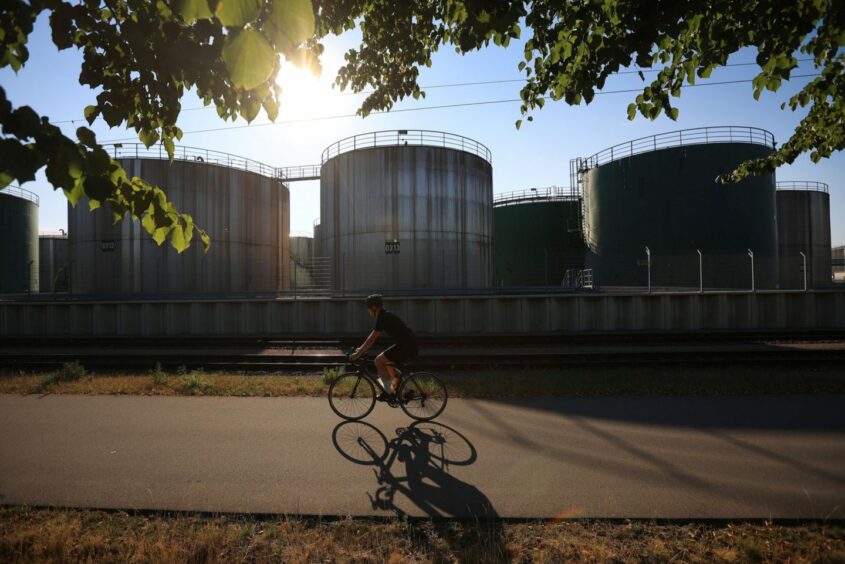
Air Products and Mabanaft have set out a plan to build Germany’s first large green ammonia import terminal, at the Port of Hamburg.
The companies set out their plans at a ceremony today in Hamburg. Also attending was German Federal Minister for Economic Affairs and Climate Action Robert Habeck and Mayor of Hamburg Peter Tschentscher.
The plant aims to begin operations in 2026.
The companies intend to base the terminal at Mabanaft’s existing port facility. This will allow the import of green ammonia from Air Product’s facilities around the world.
Once at the terminal, the plan is to convert the ammonia back into hydrogen. The companies will then distribute this to buyers locally and across northern Germany.
Air Products chairman, president and CEO Seifi Ghasemi said the companies were looking “forward to further progressing our plans of importing needed-renewable energy into Germany, through our planned facility”. Air Products is the world’s largest hydrogen producer.
As such, the company “is in an excellent position to meet demand, having committed billions of dollars to produce renewable energy at locations around the world. Air Products fully appreciates the support and visionary leadership of the German government, further demonstrated by the presence of Minister Habeck, the Port of Hamburg and other members of regional and local governments at today’s ceremony,” he added.
Russian aggression
Habeck said that it was more important than ever to advance plans for the hydrogen economy.
“To do this, we are setting up our own hydrogen production in Germany, but of course we also need hydrogen from imports,” the minister said. “An accelerated energy transition with more speed in expanding renewable energies and ramping up green hydrogen are the right answers to the Russian aggression and the right answers to strengthen energy security, resilience and competitiveness.”
Mabanaft senior vice president Volker Ebeling said the aim was for the Hamburg terminal to become the “key import gateway” for the country.
Air Products signed a memorandum of understanding (MoU) with Hamburg on the project in February this year.
“Hamburg will be one of the first ports worldwide to offer clean hydrogen import infrastructure,” said the port authority’s CEO Jens Meier. “This import will drive the decarbonisation for several applications in the harbour, as well as applications in shipping.”
One problem delaying hydrogen projects has been offtake contracts. Buyers have been wary of being a first mover and having to pay higher costs. There is an expectation that prices will fall in the future.
Germany has bucked this trend with the launch of its H2Global scheme. This positions the government as an intermediary, signing 10-year deals with suppliers and selling feedstock to domestic users.
Taking steps
Air Products COO Samir Serhan, talking at COP27, said the company had already invested $15 billion in low carbon hydrogen. “We’re doing engineering, procurement and construction, these are not co-operation agreements, these are not [MoUs], these are real projects under execution.”
Air Products is involved in the largest green hydrogen project in the world, at Neom in Saudi Arabia. In October, it committed to an investment of $500 million for a green hydrogen site in New York. It aims to start producing in 2026-27.
While Germany is pursuing hydrogen imports, it is also nearing the start of LNG imports. Lower Saxony announced this week the completion of onshore infrastructure at Wilhelmshaven, which will support an FSRU. Construction took only 194 days.
The Hoegh Esperanza FSRU is due to arrive at the jetty by the end of the year.
